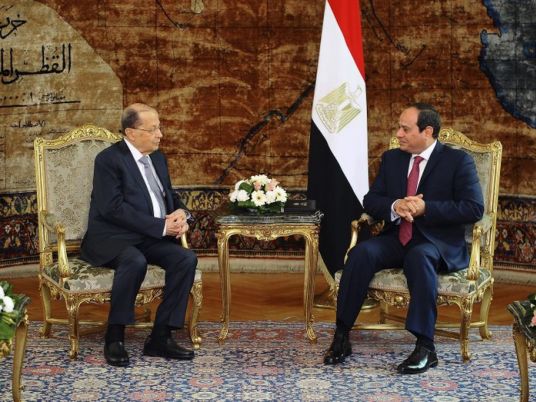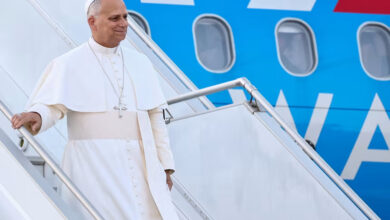
Lebanon's newly elected president arrived in Egypt on Monday, a day after defending Hezbollah in remarks to a private Egyptian TV station — comments that underlined his unabated support for the Iranian-backed Shia militant group.
Michel Aoun's last visit to Egypt was as a military officer, 55 years ago. He was elected in October after a 29-month vacuum in the country's top post.
After talks with his Egyptian counterpart, Abdel-Fattah al-Sisi, also a former career military officer, Aoun called upon Egypt to lead an "Arab salvation plan" to combat terrorism in the region.
Aoun also invited Sisi to visit Lebanon and said that Egypt has offered to support the Lebanese army and the country's security forces, without elaborating further.
Lebanon's political factions are deeply divided with some, like Aoun's party and Hezbollah, aligning with Iran, while their opponents side with Saudi Arabia. Hezbollah's militia is a force that rivals Lebanon's army and police. Aoun, whose Christian party is allied with Hezbollah, said earlier that Iran's support for the group "could continue indefinitely."
"As long as the Lebanese army is not strong enough to battle Israel … we feel the need for its existence," Aoun told the Egyptian TV network CBC on Sunday night. He added that Hezbollah "has a complementary role to the Lebanese army."
His remarks could spark tension with Sunni powerhouse Saudi Arabia, Iran's regional rival. The two countries have been engaged in proxy wars across the region for years.
Egypt and Saudi Arabia are at odds over conflicting agendas, including Syria and Yemen. In October, the Saudis halted oil shipments to Cairo, at a time when Egypt, the Arab world's most populous nation, is in deep economic crisis.
The Saudi move appears to have been in response to Egypt's support of a UN Security Council resolution on Syria that was fiercely opposed by Riyadh. Saudi Arabia backs Syrian rebels fighting to topple President Bashar al-Assad. Egypt, fearing the rise of Islamic militants, has pushed for a political solution that might keep Assad in power.
Aoun visited Saudi Arabia last month in an attempt to restore relations, which deteriorated after Riyadh accused Beirut of failing to condemn the 2016 attacks by demonstrators on Saudi missions in Iran after the kingdom's execution of a prominent Shia cleric. In retaliation, Saudi Arabia halted a US$3 billion arms deal and banned Saudis and other Gulf nationals from traveling to Lebanon.
After Aoun's visit, the ban on travelers was lifted but the arms deal remains on pause. A senior Lebanese official told The Associated Press at the time that Saudis have conditions to unblock the military aid to Lebanon, suggesting that the arms must not end up in the hands of Hezbollah, which the Saudis view as a terrorist organization.




